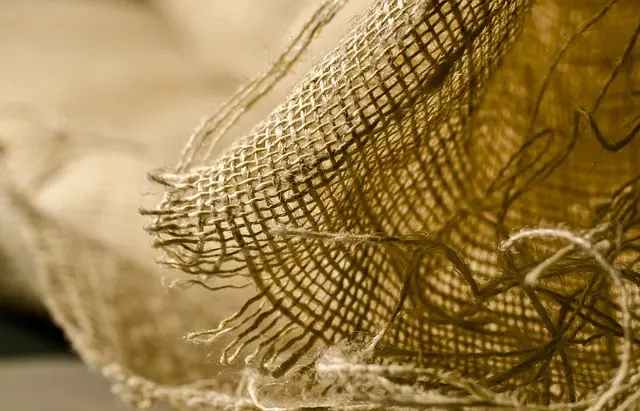Kratom, derived from the Mitragyna speciosa tree, has been recognized for its potential to alleviate muscle soreness by interacting with opioid receptors, primarily through its active compounds mitragynine and 7-hydroxymitragynine. As of the latest information, kratom is not federally controlled but remains subject to state and local laws, making its legal status in Louisiana nuanced; it is currently legal, yet subject to specific restrictions and susceptible to legislative changes. Consumers in Louisiana should stay informed about current regulations and ensure they comply with these, including purchasing constraints in certain parishes. It's important for individuals considering kratom for pain relief to consult healthcare providers due to individual differences in response and limited long-term safety data. Quality and purity can vary among kratom products, so obtaining high-quality supplements from reputable sources is essential. Prospective users should be cautious, avoiding concurrent use with other substances or prescription painkillers, and start with a low dosage to gauge personal sensitivity. Regular monitoring of effects and adherence to dosage guidelines are recommended for safe and effective use. Keeping abreast of Louisiana's evolving legal stance on kratom is crucial for responsible use and compliance.
Muscle soreness can be a debilitating experience for individuals engaged in physical activities, from athletes to everyday gym-goers. Seeking effective relief without resorting to prescription medications often leads to exploring natural alternatives. Kratom, a botanical supplement with a growing body of interest for its potential therapeutic properties, has emerged as one such option. This article delves into the role of kratom in providing muscle soreness relief, especially in Louisiana, where concerns about its legal status are paramount. We will explore kratom’s natural remedy capabilities, including strain varieties and recommended dosages, while ensuring safety and adherence to state regulations. Whether you’re a fitness enthusiast or someone recovering from an injury, understanding how kratom might alleviate your muscle soreness in compliance with Louisiana laws is crucial.
- Understanding Muscle Soreness and Kratom's Role: A Closer Look at Legal Status and Relief Potential in Louisiana
- Kratom as a Natural Remedy for Muscle Soreness: Strains, Dosages, and Safety Considerations
- Comprehensive Guide to Integrating Kratom into Your Muscle Soreness Management Routine in Compliance with Louisiana Laws
Understanding Muscle Soreness and Kratom's Role: A Closer Look at Legal Status and Relief Potential in Louisiana

Muscle soreness can range from a mild discomfort to severe pain, often as a result of intense physical activity, exercise, or even injury. The body’s natural response to such exertion is inflammation, which is part of the healing process. Understanding the root cause of muscle soreness is crucial for selecting an appropriate remedy. Enter kratom, a supplement derived from the leaves of the Mitragyna speciosa tree native to Southeast Asia. Kratom interacts with the body’s opioid receptors, which can help alleviate pain and promote relaxation. Its active compounds, mitragynine and 7-hydroxymitragynine, are believed to play a significant role in this analgesic effect.
When it comes to legal status, kratom’s regulatory framework varies across the United States, including Louisiana. As of the knowledge cutoff date, kratom is not explicitly listed as a controlled substance under federal law, which means its legality can depend on state and local regulations. In Louisiana, kratom is technically legal; however, it’s important for individuals to verify current state laws, as legal status can change. Users in Louisiana interested in using kratom as a potential relief strategy for muscle soreness should first consult with healthcare professionals. The relief potential of kratom is subject to individual physiology and tolerance levels, and its use should be approached with caution, especially given the lack of long-term safety data. For those who choose to explore kratom for pain management, it’s essential to source high-quality products from reputable vendors to ensure both safety and efficacy.
Kratom as a Natural Remedy for Muscle Soreness: Strains, Dosages, and Safety Considerations

Kratom, derived from the leaves of the Mitragyna speciosa tree, has been a subject of interest for those seeking natural remedies for muscle soreness. Its efficacy in alleviating pain is attributed to its interaction with the opioid receptors in the brain. When it comes to utilizing kratom for this purpose, discerning the right strain and dosage is crucial. Strains such as Maeng Da and Bali are commonly reported to provide analgesic effects; however, individual responses may vary. It’s advisable to start with a lower dose to gauge one’s sensitivity before gradually increasing it if necessary.
For those in Louisiana considering kratom for muscle soreness relief, it’s important to note the legal status of the supplement. As of the knowledge cutoff date, kratom is not legally restricted at the federal level, but its status varies by state and locality. In Louisiana, kratom is currently legal, but regulations can change, so it’s essential to verify the most current legal standing. Safety considerations are paramount; kratom should be used responsibly as overuse or combining it with other substances, including prescription painkillers, can lead to adverse effects. Always consult with a healthcare professional before integrating kratom into your muscle soreness relief strategy, especially if you have underlying health conditions or are taking medications that can interact with kratom’s effects.
Comprehensive Guide to Integrating Kratom into Your Muscle Soreness Management Routine in Compliance with Louisiana Laws

When managing muscle soreness, incorporating kratom supplements into your routine can be a consideration for some individuals, provided it aligns with Louisiana’s legal framework. Kratom, derived from the leaves of Mitragyna speciosa, has been recognized for its potential benefits in alleviating pain and discomfort. To integrate kratom into your muscle soreness management routine in compliance with Louisiana laws, it is crucial to first verify its legal status within the state. As of the knowledge cutoff date, kratom is not explicitly illegal at the federal level, but its status can vary by state and locality. In Louisiana, kratom is currently legal, yet regulations may dictate where it can be sold and consumed. Users should always adhere to local laws; for instance, in some parishes, kratom may only be available for sale if it is labeled as not intended for human consumption.
Before integrating kratom into your regimen, it is essential to understand the different strains available—Indo, Maeng Da, Bali, and Thai, among others—each offering distinct alkaloid profiles that may influence their effects on muscle soreness. It is also important to start with a low dosage to gauge individual sensitivity and avoid adverse reactions. Users should consider consulting healthcare professionals before making any changes to existing pain management strategies, especially if taking other medications or dealing with pre-existing health conditions. Additionally, monitoring the impact of kratom on your body and adjusting its use according to your unique response will contribute to a safe and effective approach to muscle soreness relief. Always prioritize following dosage guidelines, and consider discontinuing use if adverse effects arise. Integrating kratom into your routine should be done thoughtfully and responsibly, with an ongoing awareness of both the potential benefits and the need for compliance with Louisiana’s evolving legal landscape.
In conclusion, muscle soreness can be a significant discomfort for individuals engaging in physical activities, and exploring natural remedies such as kratom offers a potential avenue for relief. As established, kratom’s role in managing muscle soreness is multifaceted, with various strains and dosages to consider. However, it is crucial for Louisiana residents to first verify the legal status of kratom in their area, as its legality can vary within the state. Adhering to local laws and understanding safety considerations are paramount when integrating kratom into your muscle soreness management routine. Prospective users should approach this natural supplement with caution and consult healthcare professionals before use. By doing so, individuals in Louisiana may find kratom to be a viable option for alleviating muscle discomfort, provided it is legal in their region and used responsibly.






